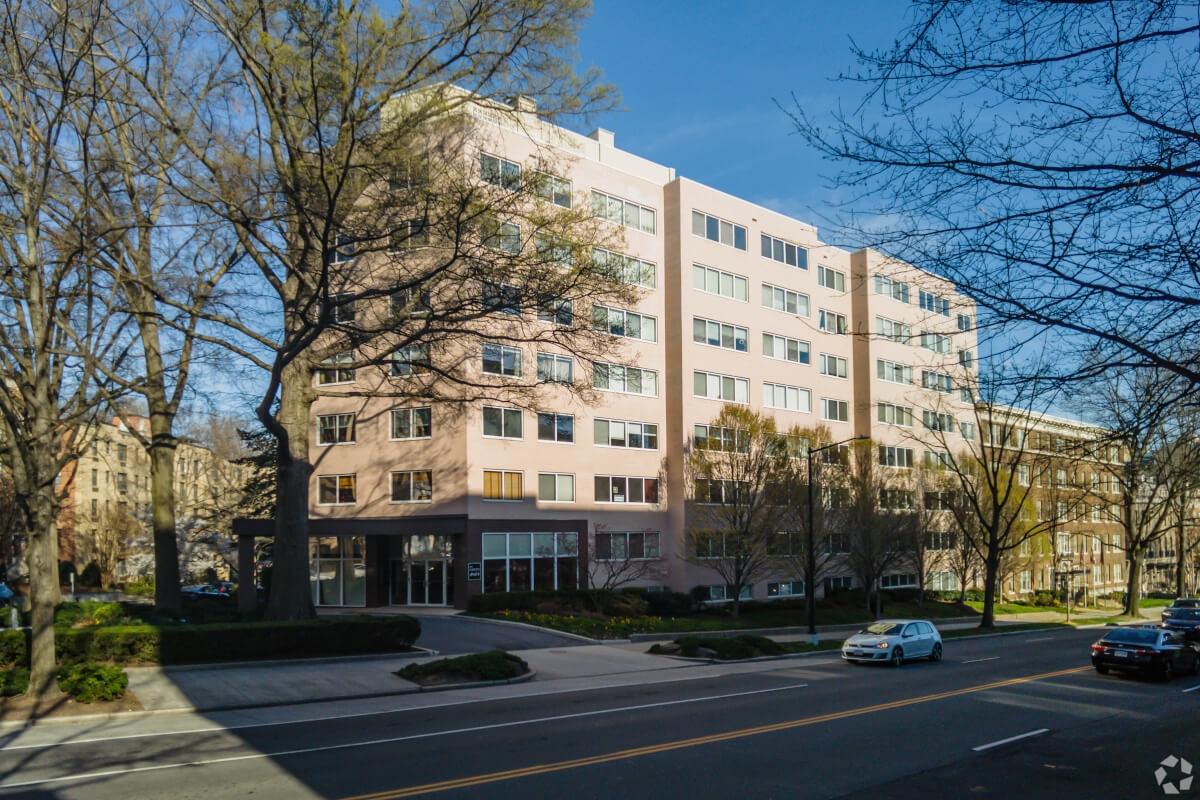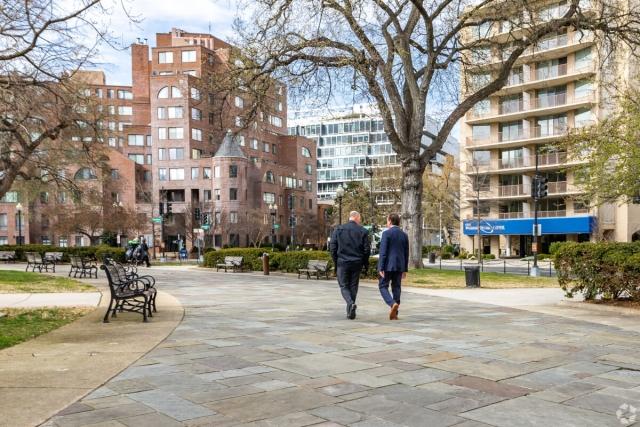Watch cherry blossom petals flutter by your window and feel the heart of the country pulse under your feet in Washington D.C. However, living in D.C. doesn’t come cheap and it has unique trends. On May 30, 2025, the average rent in Washington D.C. was $2,304/month, 42 percent higher than the national average.
To live affordably, renters turn to Washington D.C. rent-controlled apartments. It can be tough to find an apartment with rent control as there is a lot of competition and limited availability. The city aims to make cheaper rental options more visible with the release of the RentRegistery, an online resource to review rental info, including rent control status. Learn all about the new database as well as how rent control in Washington D.C. operates to find an affordable home.
- What is a rent-controlled apartment?
- What renters need to know about rent control in Washington D.C.
- How to get a rent-controlled apartment in Washington D.C.
What Is a Rent-Controlled Apartment?
Rent-controlled apartments are units where the landlord can only raise rent by a certain percentage. The increase is usually determined by a specific formula set by a law or local agency with some exceptions. The formula is often tied to inflation with the Consumer Price Index playing a part.
In Washington D.C., the term “rent control” is commonly used, although the system looks more like rent stabilization. Rent control doesn’t apply to all apartments, so if it’s a priority for you, be sure to find a place where rent control is applied.
What Renters Need to Know About Rent Control in Washington D.C.
The allowable rent increase is based on the Consumer Prices Index for the Washington D.C. Metropolitan Statistical Area (CPI-W) plus two percent, capped at a maximum of 10 percent. From May 1, 2025 through April 30, 2026 the rent increase cap is 4.8 percent.
Rent control in Washinton D.C. is administered by the Rental Accommodations Division (RAD). Landlords can increase rent if they follow these guidelines from the Department of Housing and Community Development (DHCD):
- The rent increase cannot exceed the previous rent amount plus the permitted increase.
- The increase must comply with the limits set by the law.
- At least 12 months must have passed since the last rent adjustment, unless the unit is vacant.
- The increase must align with the terms outlined in the lease agreement.
- The rental unit must be properly registered with the RAD.
- Both the rental unit and common areas of the housing accommodation must meet housing code standards.
- Tenants must receive a written notice of the rent increase at least 60 calendar days in advance.
Rent control applies to any non-exempt rental unit. Only units that have been registered with RAD as exempt from rent control are not under effect of related laws.
Rent control exemptions in Washington D.C.
Apartments built after 1975 are exempt from rent control. Other common exemptions are:
- Federally or district-subsidized rentals
- Rentals that are owned by one person (not a corporation) that owns four or less rental units in the District
- Vacant when the Act took effect
- Residential housing undergoing improvements as part of a building enhancement plan and receiving rehabilitation support from DHCD
How to Get a Rent-Controlled Apartment in Washington D.C.

On June 2, 2025, the RentRegistry went live to help renters find a rent-controlled apartment in Washington D.C. It is an online database that contains easily accessible information about rent-controlled housing in the District. CoStar News reports that the aim of this modernization project is to offer greater clarity to current and prospective renters on cheaper rental options in the city.
DHCD says the RentRegistry “is designed to provide real-time, searchable information about buildings and rental units, base rents, services and facilities, rent adjustments, unit features, and vacancy status.” So, you can easily see what vacant rent-control apartments exist to find your next home.
How to tell if your Washington D.C. apartment is rent-controlled
You can search rent control records online through Filenet, run by the DHCHD’s Housing Regulation Administration. But the new RentRegistry will become the primary platform for all rent control-related information and records.
All landlords are required to re-register their rental properties, regardless of exempt or non-exempt status, by August 31, 2025. Anyone involved in housing, whether it be the landlord or renter, must use the RentRegistry. The DHCD will not accept any paper filings except eviction notices and housing provider petitions.
This article is for informational purposes only and not intended as legal, financial, or housing advice. Readers should consult the Department of Housing and Community Development (DHCD) or official sources for accurate and up-to-date information. Always verify specific details directly with official sources or seek expert advice tailored to your situation.
FAQs
What should I do if my rent has been unfairly increased?
If you believe your rent has been increased unfairly, you can file a tenant petition with RAD. RAD will review your petition before sending it to the Office of Administrative Hearings (OAH) for a hearing and determination.
What fair housing laws are in Washington D.C.?
Fair housing falls under the District of Columbia Human Rights Act of 1977, landlords cannot discriminate because of protected categories including:
- Race
- Color
- Religion
- National origin
- Sex
- Age
- Marital status
- Sexual orientation
- Gender identity/expression
- Familial status
- Disability
- Source of income
If you think you have been a victim of discrimination, file a complaint with the Office of Human Rights.
How much of your salary should go to rent in D.C.?
When it comes to how much of your income should go to rent, the rule of thumb is 30 percent. If you pay the average rent in Washington, D.C. of $2,304 then you would need to make $7,680 a month or $92,160 a year. Data is from the Rent Trends page on Apartments.com on June 4, 2025.






